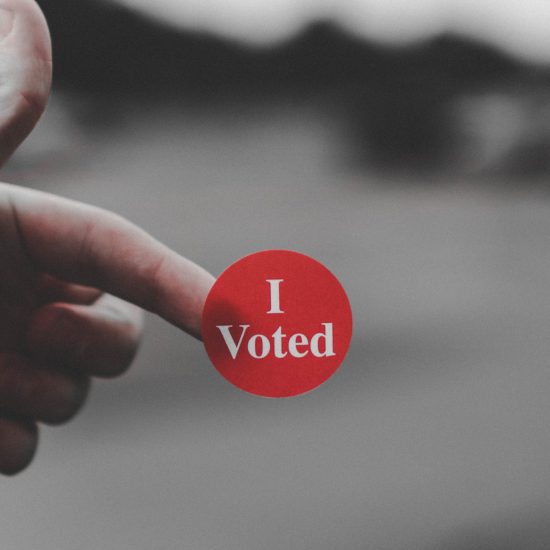By Bill Webb
Word&Way Editor
An unbelievable number of books have been written about Abraham Lincoln, the 16th President of the United States. In a veritable historical laboratory, his life has been studied and dissected by scholars and the less scholarly, by admirers, detractors and the merely curious.
 The bicentennial of Lincoln’s birth on Feb. 12 has brought that interest to the front burner once more, especiually perhaps for younger generations.
The bicentennial of Lincoln’s birth on Feb. 12 has brought that interest to the front burner once more, especiually perhaps for younger generations.More than a few years ago, under the auspices of the National Park Service, Lincoln’s home in Springfield, Ill. — the only home he ever owned — was closed to visitors for restoration and research. Experts reportedly peeled back layers of wallpaper and paint to more closely present the popular tourist destination as it was when the Lincolns called it home.
Researchers went into the backyard and excavation experts “dug up a little dirt” on the late president and his family. They excavated the home’s source of water — a backyard well — after generations of disuse and found clues to the eating preferences of the Lincoln family years before they became occupants of the White House. In case you are interested, chicken appeared to be a staple of the family’s diet. Spicy, crispy, roasted or fried, the report didn’t say, but I’m guessing Abe likely was partial to fried chicken.
Curiosity in the assassinated leader has had a morbid side for some. At his first resting place in Oak Ridge Cemetery in Springfield, Ill., an attempt was made to steal the late president’s body. Recent dicussions have turned once again to doing DNA testing on blood samples on the shirt Lincoln was wearing when he was mortally wounded to gain information about his illnesses. The sample remains safely stored.
Many are still interested in learning what influences shaped the man’s character and his religious convictions.
Lincoln was born into a working-poor family on Sinking Spring Farm, part of which his father rented and tilled, near Hodgenville, Ky. The National Park Service maintains that site, too. From age 7 until 21, Lincoln lived in southern Indiana; today the mailing address is Lincoln City, Ind.
Later, in New Salem, Ill., an outpost near the Sangamon River, young Abe Lincoln tried his hand at shopkeeping but failed. Some have suggested that it was in New Salem that he was turned against organized Christianity by bitter sectarianism evident in annual camp meetings and visiting preachers.
Wheaton College history professor Mark A. Noll weighed in on the matter of Lincoln’s Christianity in his 1992 book A History of Christianity in the United States and Canada.
“On the one hand, it is obvious that Christianity exerted a profound influence on his life,” Noll wrote. “His father was a member of Regular Baptist churches in Kentucky and Indiana. Lincoln himself read the Bible throughout his life, quoted from it extensively, and frequently made use of biblical images (as in the ‘House Divided’ speech of 1858).
“His life also exhibited many Christian virtues,” Noll noted. “He was scrupulously honest in repaying debts from ill-fated business ventures of the 1830s. He offered tender sympathy to the widows and orphans created by the Civil War. He pardoned numerous sleeping sentries and other soldiers condemned to death for relatively minor lapses.”
During his years as president, Lincoln regularly attended the New York Avenue Presbyterian Church in Washington, Noll wrote. “On the other hand, Lincoln never joined a church nor ever made a clear profession of standard Christian beliefs.”
But Lincoln did ponder the eternal significance of losing two sons prematurely, the occasional mental instability of his wife and the carnage of the Civil War, Noll said.
“…Lincoln’s speeches and conversation revealed a spiritual perception far above the ordinary,” the historian wrote. “It is one of the great ironies that the most profoundly religious analysis of the nation’s deepest trauma came not from a clergyman or a theologian but from a politician who was self-taught in the ways of both God and humanity.”
Noll concluded: “The source of Lincoln’s Christian perception will probably always remain a mystery, but the unusual depth of that perception none can doubt.
“Nowhere was that depth more visible than in his second inaugural address of March 1865: ‘Both [North and South] read the same Bible, and pray to the same God; and each invokes His aid against the other…. The prayers of both could not be answered; that of neither has been answered fully. The Almighty has His own purposes.’”
When I was growing up — much later than Lincoln, mind you — older people used a term, “The proof is in the pudding,” a variation of “The proof of the pudding is in the eating.” It means that the true value or quality of something only becomes evident when it's put to use or is demonstrated.
Mr. Lincoln certainly was not a perfect person; he couldn’t be. But he over and over gave evidence of being in tune with the values and virtues of Holy Scripture and the God of the Bible. I suspect few American presidents have been thrown into such a crucible as Lincoln experienced and emerged with as clear a sense of the sovereignty and nature of God.
We all should have as keen an insight into the ways of God as the 16th president.
Bill Webb is editor of Word&Way and has visited many of the Lincoln sites.


